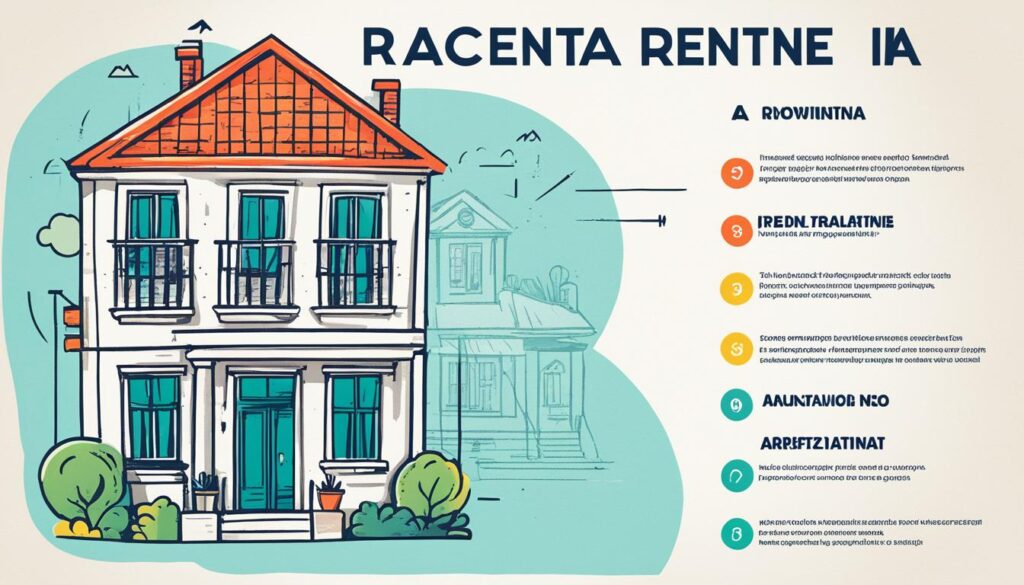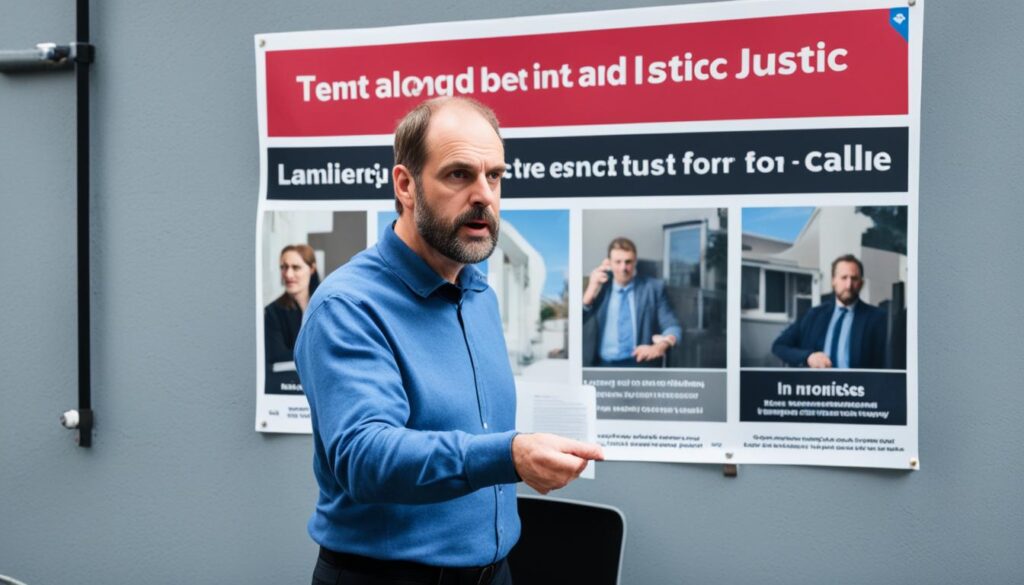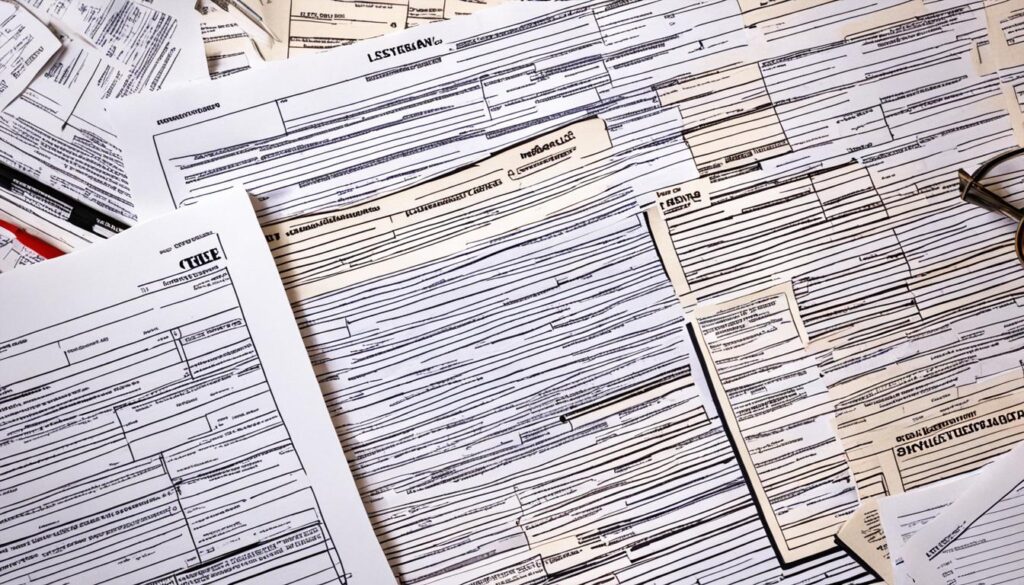The realm of renting in Argentina is increasingly complex, steeped in regulations that both tenants and landlords must navigate to secure their interests. Renting in Argentina Rules are particularly crucial to understanding, especially in a country where economic hardship influences the housing market sharply. With rampant inflation and a limited supply of properties, the ongoing housing crisis has necessitated a granular approach to comprehending Argentina rental laws.
As we explore the particulars of rental agreements and obligations, it becomes ever more important to recognize the shift brought about by recent legislative changes and their nagging implications. From documenting the essential components of rental agreements to examining tenant rights and landlord obligations, this section lays the groundwork for a comprehensive understanding of today’s rental landscape.
In this exploration, we will also touch upon some of the notable issues that arise from the legal framework, particularly as both parties struggle to adapt. Ultimately, having a firm grasp of the regulatory environment can pave the way for a more harmonious rental experience, potentially alleviating confusion and fostering better communication12.
Key Takeaways
- Understanding the regulatory framework is crucial for both tenants and landlords.
- High inflation limits affordability and complicates rental negotiations.
- Recent reforms have altered rental agreements and their management.
- Legal clarity can lead to better communication between parties.
- Having a good grip on tenant rights is key for securing fair treatment.
Contact us if you are Interested in Buying Property Abroad!
The Current Rental Landscape in Argentina
Argentina’s rental landscape faces significant challenges driven by pressing economic conditions, particularly high inflation rates. In July, rents in Buenos Aires were reported to be 64% higher compared to the same period in the previous year3. With inflation peaking at almost 95% in 2022, the cost of living has risen steeply, putting financial pressure on tenants who often allocate over 60% of their income to rent4. This extreme scenario is compounded by a notable decrease in housing supply, as many landlords have opted out of renting their properties, choosing to sell instead due to stringent renting regulations3. The result is a limited selection of rental properties in a landscape where demand has soared.
Inflation and Its Impact on Rental Prices
The correlation between inflation and increasing rent prices is stark. For instance, some areas in Buenos Aires witnessed nearly 100% rent increases, outstripping salary increments4. The lifting of past evictions and rent freezes has led to roughly 1,500 new eviction court cases being filed in the city since April3. This enforcement of eviction rules reflects the wider economic hardships faced by residents.
Decreased Housing Supply and Increased Demand
A drop in housing availability has become evident in Buenos Aires, where the number of properties listed on platforms like Airbnb has surged from 10,000 in 2019 to approximately 26,000 today4. Despite this, fewer than 400 apartments are officially registered for temporary or tourist housing4. This discrepancy illustrates that the market is under significant strain, contributing to the struggles of middle-class renters. The increasing number of people living on the streets, which has risen by nearly a third since 2019, further emphasizes the urgent need for regulatory reform to balance supply and demand in the rental market3.
Key Regulations in Renting in Argentina Rules

Understanding the Renting in Argentina Rules entails navigating a complex landscape of lease requirements Argentina that are strictly governed by law. The recent 2020 Rental Law has introduced important changes aiming to protect both tenants and landlords while establishing a clearer framework for rental agreements.
An Overview of the 2020 Rental Law Changes
The 2020 Rental Law necessitates a minimum contract duration of three years, which impacts rental practices significantly. Landlords cannot increase rent arbitrarily; these adjustments must adhere to specific guidelines noted within the rental agreement or the local rental laws5. This law’s intention is to provide stability, but it has led to unintended consequences, such as landlords raising initial rents to safeguard against future adjustments.
Implications of the Law on Rent Adjustments
Under this legislative framework, understanding rental agreement laws Argentina becomes crucial. For example, common grounds for eviction now include non-payment of rent and other lease violations, making it critical for tenants to remain compliant5. On the flip side, tenants possess rights that enable them to withhold rent if landlords neglect necessary repairs, thereby ensuring property maintenance is upheld. As these regulations evolve, the rental marketplace continues reflecting these dynamic challenges and opportunities.
Understanding Argentina Rental Laws

Renting in Argentina involves distinct regulations, especially when determining the difference between long-term and temporary rentals. Long-term rentals in Argentina typically span two to ten years, offering tenants a stable living environment. In contrast, temporary rentals cater to tourists looking for shorter stays, often coming with significantly higher rental prices. Understanding these property rental guidelines Argentina is crucial for expats to navigate the local market effectively.
Long-Term vs. Temporary Rentals
Long-term leases are generally favored for their stability, whereas temporary options appeal due to their flexibility. Many landlords may prefer long-term tenants to reduce turnover costs. Notably, recent shifts in economic policies under President Javier Milei have introduced changes that affect both types of rentals. Rents under the new emergency decree can now be set in dollars, which may lead to increases of up to 500% in contract renewals6.
Contract Length and Conditions
Under renting regulations in Argentina, a minimum lease term of three years is established by the Rent Law enacted in July 2020. Rental agreements outline specific conditions that must be adhered to, including renewal options and price adjustments aligned with salary increases and inflation rates. With inflation soaring above 160%, these adjustments play a crucial role in maintaining the financial viability of rental contracts6.
Security Deposits and Additional Costs
Security deposits in Argentina typically cannot exceed one month’s rent, providing some protection for tenants against potential damages. Besides the deposit, tenants often face additional costs such as agency fees and service charges. Being aware of these obligations is vital in understanding your financial responsibilities when renting a property. Further insights into the local rental market can be found here.
Contact us if you are Interested in Buying Property Abroad!
Tenant Rights and Landlord Obligations

Understanding tenant rights in Argentina is essential for a smooth rental experience. This section elaborates on what tenants can expect from their landlords and the legal obligations landlords must fulfill to ensure compliance with local regulations. Tenant rights encompass aspects such as the ability to request necessary repairs and the conditions under which eviction may occur. Such rights are crucial for creating fair rental conditions and addressing disputes that can arise during the lease period.
What Tenants Are Entitled To
Tenants in Argentina enjoy various rights that provide protection during their rental agreement. For instance, they are entitled to a habitable living space, with landlords obliged to maintain essential utilities and perform necessary repairs. Rent payments should occur monthly, and landlords cannot index these payments for inflation during the lease term7. If a landlord fails to uphold these obligations, tenants have the right to terminate their lease under specific circumstances, particularly if the property is not maintained adequately8.
Landlord Responsibilities Under the Law
Landlords have a duty to ensure that the property meets safety and health standards. According to Argentine law, they must provide a written rental contract that details terms of the lease essential rental conditions, including the duration and any penalties for early termination. Alongside maintaining the property, landlords must also register lease agreements with the tax authorities and provide tenants with guarantees to mitigate risks related to potential defaults7. Judicial proceedings must be initiated for evictions, underscoring the structured process in place to protect tenant rights7.
| Tenant Rights | Landlord Obligations |
|---|---|
| Maintain habitable living conditions | Ensure property is up to safety standards |
| Request necessary repairs | Perform repairs in a timely manner |
| Terminate lease under poor maintenance | Provide written rental contracts |
| Eviction only through judicial proceedings | Register the lease with tax authorities |
With a clear understanding of tenant rights in Argentina and the corresponding landlord obligations, both parties can navigate the rental landscape with more transparency and responsibility7.
Challenges Facing Renters in Argentina

Renters in Argentina encounter significant hurdles that deeply affect their living situations. The escalating economic struggles in Argentina create a landscape where rental affordability becomes a pressing concern.
Economic Struggles and Rental Affordability
The economic landscape has drastically shifted for tenants. Data reveals that in Buenos Aires, renters have faced cumulative rent increases ranging from 285 percent to 309 percent for residences with one to three bedrooms within the past year6. In December alone, Argentina’s prices surged by 25.5 percent, exacerbating the financial strain on residents6. As a result, individuals spend an average of 41% of their income on rent, making it the largest expense for many locals9. The horrifying reality of inflation in Argentina, projected to exceed 100% in 2023, significantly diminishes purchasing power and increases financial pressure on tenants9.
The Problem of Vacancy vs. Rental Compliance
In terms of rental compliance issues, the repeal of the Rent Law in July 2020 has left many tenants vulnerable. This law initially stipulated a minimum lease term of three years, with price adjustments linked to salary and inflation increases6. Current contracts now depend solely on the negotiated terms between landlords and tenants, permitting substantial increases in rent—up to 500% in some cases6. The government decision to allow agreements to be denominated in dollars further complicates matters for tenants, who may not have the means to pay in foreign currency6. Organizations like Inquilinos Agrupados are advocating for the reinstatement of protective legislation amidst this turmoil6.
Conclusion
Understanding the renting regulations in Argentina is crucial for both expatriates and locals navigating the evolving rental landscape. Amid fluctuations in rental prices and a need for affordable housing, it is evident that the overview of rental laws in Argentina has significant implications for tenants and landlords alike. The changing economic conditions, marked by the recent decreases in property values—such as a notable drop of 5.41% in Buenos Aires apartments—underscore the importance of being informed about your rights and obligations10.
One of the recurring themes in the current rental environment is the challenge of staying compliant with local regulations while managing rental costs. While the government has taken steps to protect tenants, including restrictions on rental increases, the ongoing economic challenges reveal a need for further dialogues and reforms to ensure a quick resolution to rental issues. This balance is essential as we look toward the future of renting in Argentina, where effective governance could lead to a more equitable landscape for all parties involved.
As highlighted in the experiences shared by expatriates, adapting to the unique aspects of the rental market in Argentina will prepare renters for potential obstacles. Staying informed about the evolving regulations will not only aid in securing a rental property but also enhance understanding of rights and responsibilities moving forward as the rental landscape continues to11.
Contact us if you are Interested in Buying Property Abroad!
FAQ
What are the main tenant rights in Argentina?
What does the 2020 Rental Law entail?
How does inflation affect rental prices in Argentina?
What should I know about security deposits when renting?
What are the key distinctions between long-term and temporary rentals?
What are the landlord obligations in Argentina?
How can renters address non-compliance by landlords?
What are the financial obligations beyond rent?
What are the main challenges for renters in Argentina?
Source Links
- https://www.angloinfo.com/how-to/argentina/housing/renting-accommodation/lease-agreement
- https://www.expatfocus.com/argentina/guide/argentina-lease-agreements
- https://globalpressjournal.com/americas/argentina/law-tried-protect-renters-evictions-homelessness-surged/
- https://argentinareports.com/buenos-aires-rent-crisis-what-3-pre-candidates-for-mayor-plan-to-do-if-elected/3453/
- https://lawzana.com/landlord-tenant-lawyers/argentina
- https://www.batimes.com.ar/news/argentina/buenos-aires-tenants-desperate-over-inflation-and-housing-crisis.phtml
- https://medium.com/@dylantristan454/latin-america-home-argentina-landlord-and-tenant-of-argentina-42ae5446a44d
- https://cspabogados.com.ar/en/regulations-on-real-estate-leases-in-argentina/
- https://www.fodors.com/world/south-america/argentina/experiences/news/book-a-hotel-instead-of-an-airbnb-in-argentina-for-ethical-and-financial-reasons
- https://thelatinvestor.com/blogs/news/argentina-real-estate-foreigner
- https://www.gatewaytosouthamerica-newsblog.com/real-estate-law-overview-for-argentina/

Comments